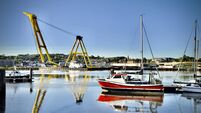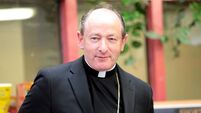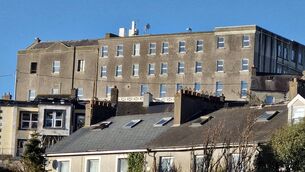Opinion: Politics back to business as usual – and still nothing for Waterford

Minister for Health Jennifer Carroll MacNeill pictured during her recent visit to a variety of Waterford healthcare settings. Photo: Noel Browne
Six months after the general election, the political status quo has re-emerged with the failure to deliver meaningful capital investment to Waterford and the South East.
Take University Hospital Waterford - after years of data showing delayed cardiac transfers and avoidable patient harm, the government finally announced a future 24/7 cardiac care service - eight years after Waterford consultants first raised the alarm.
The delay likely cost lives, yet it took relentless local pressure to force this long-overdue decision, and investment to make it a reality is still awaited.
Before the recent general election, Mary Butler publicly blamed Green Party leader Eamon Ryan for blocking the Waterford Airport runway extension. Now that her party, Fianna Fáil, holds the Transport ministry, she now claims, in a recent interview, the roadblock lies with senior civil servants. Will John Cummins, if questioned, follow suit and suggest the Airport project would be underway if Fine Gael held the Transport portfolio? The goalposts move, the excuses change — the runway remains untouched.
Then there’s SETU. Pharmacy and Veterinary faculties have been announced, but students won’t begin courses for at least 18 months. The €450 million capital plan proposed by the University President has quietly vanished. The long-promised (2007) Engineering Building, due to start in Q1 this year, hasn’t materialised.
No decision has been made on funding two additional SETU buildings proposed for the former glass factory site, despite significant and welcome private sector investment next door by Frisby Investment.
In contrast, the University of Galway was recently awarded €80 million for a new library, not a hint of difficulty, and 416 new health science places long awaited have been allocated to institutions in Dublin, Cork, Galway and Limerick, while the faculty in SETU Waterford received nothing.
Other transport links tell a similar story. No progress has been made on the N24 or N25 projects in decades, no funding made possible for Waterford Port, yet €456 million was found for the Ringaskiddy bypass, and Cork Airport has secured €200 million from Government for the next decade.
Even Sinn Féin, despite doubling their Dáil representation from Waterford, have failed to table any meaningful motion questioning the lack of investment in Waterford’s university, hospital, or airport.
Locally, their TDs are vocal in media appearances, but the national party’s interest stops at the Suir crossing.
A once-off Dáil motion for Waterford issues appears impossible for their national executive, unlike Dublin housing, which they propose almost weekly for Dáil debate.
Yes, the Health Minister visited UHW in recent days to announce work beginning on the long-promised surgical hub — this was a commitment secured in the last Programme for Government. It’s welcome, but hard-won, and years overdue.
The truth is, the Party Politics of the past 15 years has failed Waterford. Before the general election, parties recycled the same hollow promises, and again voters at the ballot box chose to believe them — whether delivered at the Dungarvan Show by the Tánaiste, on the Dunmore Road by the Taoiseach, or during a brief whistle-stop county tour by the Sinn Féin leader.
The new Dáil’s arithmetic has further weakened the South East’s voice. While the total number of TDs nationally increased, the South East has lost representation due to electoral boundary changes — this has been compounded by Wexford TD Verona Murphy’s appointment as Ceann Comhairle.
Our exclusion from ongoing capital investment decision-making is a grim sign of what the next four years potentially holds.
With national finances tightening, contemporary history suggests Waterford and the South East will again bear the brunt of any exchequer downturn. Our capacity to withstand or recover remains limited by decades of underinvestment and the continuing political indifference that allows it to persist.
We in Waterford did not wittingly choose to be treated as a second-tier region, but that has been our political fate since 2011.
The modest progress made in the 2020 – 2024 Dáil programme appears now stalled, as party politics returns to type: political patronage - then, the people's needs.
Mistakes may be forgiven if those making them are contrite and the experience leads to new learning and rectification. The failure to learn from past mistakes means we are bound to repeat them and embed further the damage resulting.
In Waterford’s case, the cost of our political choices are not alone evident in past decades, they will unfortunately live long into the future as well.






